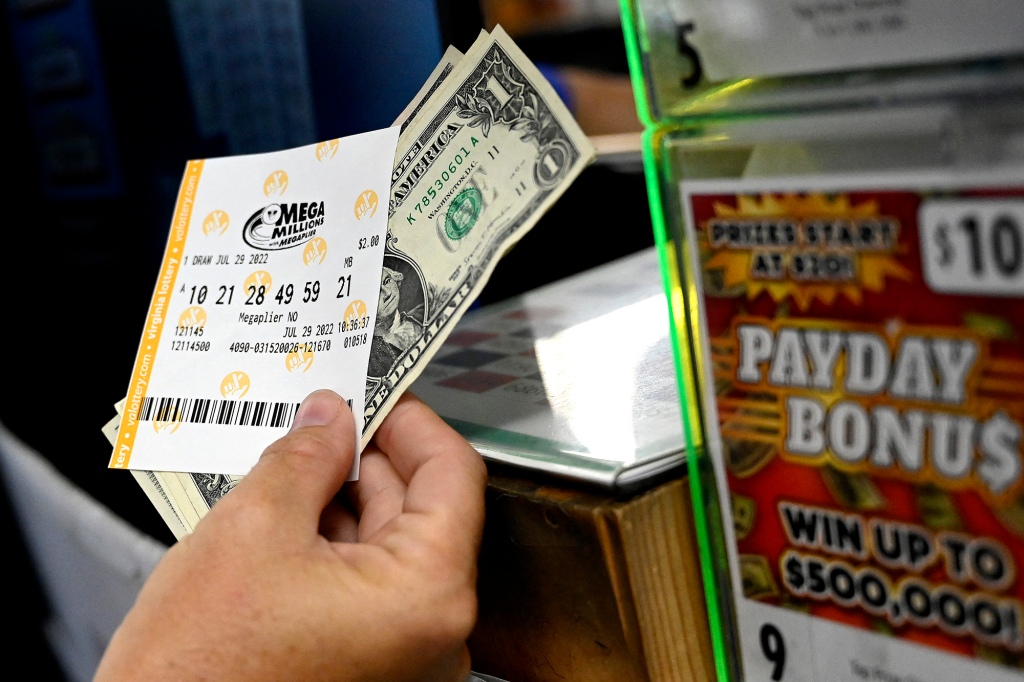Will winning make you happier?
Now that the Mega Millions lottery jackpot has topped $1.3 billion ahead of Friday night’s drawing, some experts say the emotional and mental costs of winning such a massive cash bonanza have to be taken into account when measuring money and its effect on happiness.
One stressor associated to a major cash windfall is dealing with people who come out of the woodwork to share your prize — or, rather, try to rob you of it.
“I’ve represented in six lawsuits [the] lottery ‘losers’ who lost their winnings to various investment scams,” Andrew Stoltmann, a Chicago-based attorney and a legal analyst for Fox News, told Fox News Digital.
He continued, “Whoever wins tonight’s lottery drawing [meaning Friday night, July 29] will be deluged immediately with offers from financial planners, scammers, friends and family to invest.”
The curse of the “lottery losers” is very real, said Stoltmann.
“Unfortunately, these instant millionaires often lack experience with managing money and basic investing skills, making them perfect targets for scammers,” he said.
He offered the following tips to tonight’s potential winner to stay sane and happy after the billion-dollar win.

“The winner is likely the biggest target of banks, brokerage firms and scammers worldwide,” he explained.
“Ultimately, nobody should be trusted. Multiple sets of eyes should be watching everyone who has any access to the funds.”
He added that the assumption is that “everybody will be happy for you, and not try to target you.”
But nothing could be further from the truth, he said.
“Every uncle wants to start a business and directly asks for money — family members are often the biggest drain for the winner.”
He added, “Saying no to relatives is one of the most difficult things for winners to do, but it is also the most important.”
To improve a person’s happiness and sense of peace after a huge win, Stoltmann advises that any lottery winner get off all social media immediately.
The winner should “get off Facebook, Twitter and Snapchat for a very long time,” he said, noting that social media accounts make cash-flush individuals “huge targets” for scammers.
“Scammers can tailor their pitch to you through your social media past,” he said.
“For example, if you had a parent who died of pancreatic cancer, a scammer can target you with a pitch allegedly [to] raise money for pancreatic research.”
While a big win is a “euphoric experience,” this high may not last very long, Hephzibah Kaplan, a psychotherapist with the London Art Therapy Centre and author of the book, “Almost Happy,” told Fox News Digital in an email.
“For sure, happiness can be increased with the financial security — and a big win will help provide,” said Kaplan.
“However, money does not fill many unmet needs.”
While “acquisition of new stuff” will “temporarily bring a bit of joy,” Kaplan noted that this joy may fizzle out “if the more important issues of intimacy and family relationships are out of sorts.”
He added, “We often see this with people for whom nothing is ever enough. They can be like bottomless pits, hoovering up all resources, leaving everyone depleted — with no increase in happiness.”
A big lottery win may even create more relationship problems “as the begging letters arrive,” he said, “or the expectations to share [the wealth] tests one’s generosity, as well as boundaries.”
Some people are not able to navigate these tests, so the big win “becomes a stress generator rather than stress alleviator,” said Kaplan.
He also notes that “it may be that playing the lottery is a bigger buzz than the win or loss,” saying “the thrill of the uncertainty, the risk involved that makes it edgy and pulsating.”
He added, “Gambling is the most serious of addictions and the hardest to treat.”
A sales professional from the Boston area weighed in on the lottery and the notion of increased happiness from a big win.
“It would be amazing to be able to help family and friends in a significant way,” he said, “but it’s sort of like becoming a movie star. You can’t go anywhere or do anything without others’ constant interest.”
“You hear movie stars sometimes say they miss the freedom that comes with anonymity,” he continued. “That’s probably the same with winning millions — or billions.”
His son in his early 20s, however, had a different view altogether.
“I’ll take the cash!” he said.
Read the full article Here


